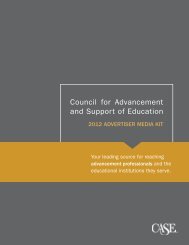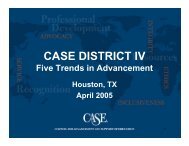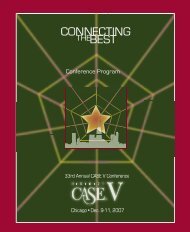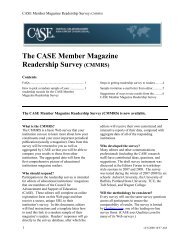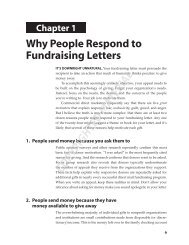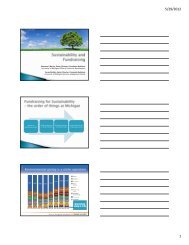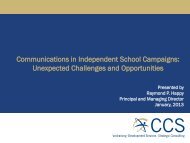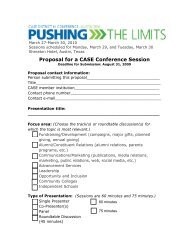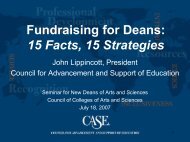You also want an ePaper? Increase the reach of your titles
YUMPU automatically turns print PDFs into web optimized ePapers that Google loves.
While critics<br />
rage over college<br />
prices, experts<br />
examine why<br />
costs have risen,<br />
what families get<br />
for their money,<br />
and whether the<br />
current system<br />
can survive<br />
By Mark Ellis<br />
tuition was “relatively modest” when David H. Feldman<br />
arrived at <strong>Kenyon</strong>, and when he left with the Class of 1978<br />
he was debt-free.<br />
His parents were public schoolteachers and savers. The<br />
cost to them in 1974 was $4,438, and young David took<br />
not a penny of financial aid. Feldman, now a professor of<br />
economics at the <strong>College</strong> of William and Mary, specializes<br />
in the economics of higher education, and he feels the tidal pull of<br />
controversy.<br />
Critics, pundits, and scholars have stormed higher education,<br />
targeted accelerating tuition, and lampooned comfy residence halls<br />
and trendy recreation facilities. Professors have been nicked for<br />
light classroom workloads and doing research of dubious value to<br />
undergraduates.<br />
Even the core value of higher education has come under attack.<br />
Money Magazine wondered, “Is college still worth the price?” New York<br />
magazine noted the fashionable idea that a college degree is “essentially<br />
worthless.” The co-founder of PayPal, Peter Thiel, established the<br />
Thiel Fellowship—a $100,000 grant for entrepreneurial grooming on<br />
the condition that those who receive it steer clear of college for two<br />
years. A number of books have piled on, including Higher Education?,<br />
which described the <strong>Kenyon</strong> Athletic Center (KAC) as “a Taj Mahal.”<br />
A 2011 Pew Research Center survey showed that 57 percent of<br />
Americans believed higher education did not provide good value for<br />
the money, and 75 percent said college was too expensive. In that same<br />
survey, 38 percent of 1,055 college presidents said higher education was<br />
“headed in the wrong direction.”<br />
Just follow the money.<br />
The Higher Cost of



